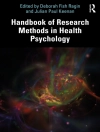The classic text–now updated with a new interpretive approach to
the WAIS?-III
Assessing Adolescent and Adult Intelligence, the classic text from
Alan Kaufman and Elizabeth Lichtenberger, has consistently provided
the most comprehensive source of information on cognitive
assessment of adults and adolescents. The newly updated Third
Edition provides important enhancements and additions that
highlight the latest research and interpretive methods for the
WAIS?-III.
Augmenting the traditional ‘sequential’ and ‘simultaneous’
WAIS?-III interpretive methods, the authors present a new approach
derived from Cattell-Horn-Carroll (CHC) theory. This approach
combines normative assessment (performance relative to age peers)
with ipsative assessment (performance relative to the person’s own
mean level). Following Flanagan and Kaufman’s work to develop a
similar CHC approach for the WISC?-IV, Kaufman and Lichtenberger
have applied this system to the WAIS?-III profile of scores along
with integrating recent WAIS?-III literature.
Four appendices present the new method in depth. In addition to a
detailed description, the authors provide a blank interpretive
worksheet to help examiners make the calculations and decisions
needed for applying the additional steps of the new system, and
norms tables for the new WAIS?-III subtest combinations added in
this approach.
Assessing Adolescent and Adult Intelligence remains the premier
resource for the field, covering not only the WAIS?-III but also
the WJ III?, the KAIT, and several brief measures of intelligence,
as well as laying out a relevant, up-to-date discussion of the
discipline. The new, theory-based interpretive approach for the
WAIS?-III makes this a vital resource for practicing psychologists,
as well as a comprehensive text for graduate students.
Cuprins
Preface to the Third Edition.
PART I: Introduction to the Assessment
of Adolescent and Adult Intelligence.
CHAPTER 1: IQ Tests: Their History, Use, Validity, and
Intelligent Interpretation.
CHAPTER 2: Heritability and Malleability of IQ and Attacks on
the IQ Construct.
CHAPTER 3: From the Wechsler-Bellevue I to the WAIS-III.
PART II: Individual Differences on Age,
Socioeconomic Status, and Other Key Variables.
CHAPTER 4: Individual Differences for Adolescents and Adults on
Gender, Ethnicity, Urban-Rural Residence, and Socioeconomic
Status.
CHAPTER 5: Age and Intelligence across the Adult Life Span.
PART III: Integration and Application of
WAIS-III Research.
CHAPTER 6: Research on Administration, Scoring, and
Relationships between Wechsler Scales.
CHAPTER 7: Factor Analysis of the WAIS-III.
CHAPTER 8: Verbal-Performance IQ Discrepancies: A
Neuropsychological Approach.
CHAPTER 9: Verbal-Performance IQ Discrepancies: A
Clinical Approach.
PART IV: Interpretation of the WAIS-III
Profile: IQs, Factor Indexes, and Subtest Scaled Scores.
CHAPTER 10: Profile Interpretation: What the Subtests
Measure.
CHAPTER 11: WAIS-III Profile Interpretation: Steps
1-7.
CHAPTER 12: WAIS-III Profile Interpretation: Steps 8 and 9.
PART V: Additional Measures of
Adolescent and Adult IQ.
CHAPTER 13: Kaufman Adolescent and Adult Intelligence Test
(KAIT).
CHAPTER 14: Woodcock-Johnson Battery–Third Edition (WJ
III) 561
CHAPTER 15: Brief Tests of Intelligence and Related Abilities
629
APPENDIX A: Alternative Approach to Interpreting the WAIS-III:
Applying the Theory-Based Flanagan-Kaufman Interpretive Method for
the WISC-IV.
APPENDIX B: WAIS-III Interpretive Worksheet.
APPENDIX C: Norm Tables for Computing Standard Scores on the
General Ability Index (GAI) and the Clinical Clusters.
APPENDIX D: Watkins and Canivez’s Critique of the
Kaufman-Lichtenberger Interpretive System and Articulation of a New
Theory-Based Approach to Profile Interpretation.
References.
Name Index.
Subject Index.
Despre autor
ALAN S. KAUFMAN, Ph D, is Clinical Professor of Psychology at Yale
University School of Medicine and resides in San Diego, California.
He is the author or coauthor of numerous, widely used psychological
assessment instruments and books, and is a series editor (with
Nadeen Kaufman) of the Essentials of Psychological Assessment
series (Wiley). He and Elizabeth Lichtenberger have collaborated on
a number of books, including Essentials of WAIS®-III
Assessments. His most recent tests include the second editions of
the Kaufman Assessment Battery for Children (KABC-II), Kaufman Test
of Educational Achievement (KTEA-II), and Kaufman Brief
Intelligence Test (KBIT-2).
ELIZABETH O. LICHTENBERGER, Ph D, is a clinical psychologist
residing in Carlsbad, California. She has coauthored numerous
books, including Essentials of Assessment Report Writing (with
Nancy Mather, Nadeen Kaufman, and Alan Kaufman), Essentials of
KABC-II Assessment (with Alan Kaufman, Elaine Fletcher-Janzen, and
Nadeen Kaufman), and Essentials of WIAT-II® and KTEA-II
Assessment (with Donna Smith), all from Wiley.












